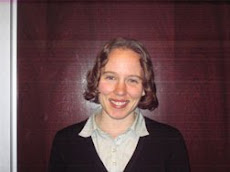
At a meeting with a press officer at Wataniya, I learned of the company’s difficulty in getting its frequencies released. Intrigued, I called the Israeli Ministry of Telecommunications to arrange an interview about this issue and was referred to Nati Schubert, head of the frequency division.
Schubert’s office in the ministry’s Tel Aviv skyscraper was casual and unpretentious. Papers, plastic cups, a pile of plastic orange straws, bottles of seltzer water, knick knacks, and a calendar with puppets made by a foundation that supports the mentally challenged adorned his desk. On the wall was a colorful poster showing how airwave frequencies have been divided in Australia.
In our first meeting, which lasted about one hour, Schubert wore khaki pants, an airy blue button-down t-shirt and polished black loafers. He talked quietly and very slowly, with a heavy accent, but chose his words carefully and precisely.
“No tape recorder,” he told me, “I prefer this be more informal.” I persisted, arguing that the tape recorder will insure that I get his quotes down verbatim, but he politely declined, and I spent the remainder of the interview taking copious, rapid notes.
When I asked Schubert why Israeli companies receive far more airwave frequencies than Jawwal, he used an analogy that shows his knowledge of my home city, Chicago. “When you go from Jerusalem to Tel Aviv, you have two lanes in each direction,” he said. “If you go from Chicago to O’Hare, you have maybe five or six lanes, right? You need more lanes [in Chicago] because you have more traffic.”
Schubert insistently declined all questions relating to why Wataniya had not received its frequencies. “I don’t want to get into it,” he said. “[The Palestinian Authority] have some problems. We are trying to assist them to resolve…I realize that you are trying to do your journalism job by asking the same thing with different angles, but that’s all I will tell you.”
When I asked him if officials at Paltel and Wataniya knew about these “problems,” he told me that he was not in communication with officials from Jawwal or Wataniya. “If they speak, they speak to the Palestinian Authority," he said. "I don’t know what they know."
***
A few days later, I met with Schubert again, after Palestinian officials gave me copies of the July 2008 contract between the Israeli government and the Palestinian Authority, which set a time table for 4.8 MHz to be released to Wataniya by April 1, or June 1 at the latest.
Schubert was not pleased. “You don’t go out and provide copies to everybody without agreement from the other side," he said. "This is an agreement between the Israeli side and the Palestinian Authority….Even in the private sector, when you get an agreement between two parties, one party does not hand out the agreement.”

%5B1%5D.jpg)
No comments:
Post a Comment